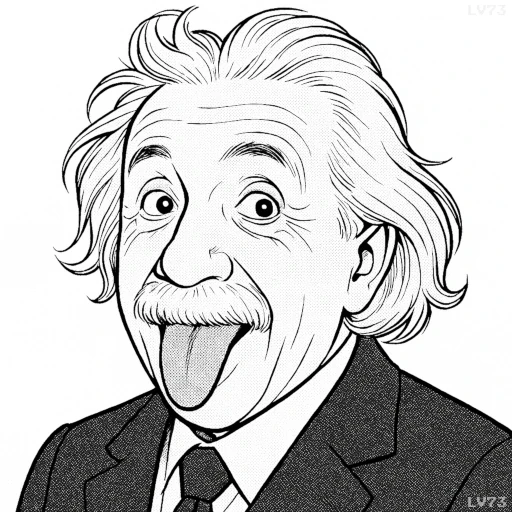“God does not play dice.”

- March 14, 1879 – April 18, 1955
- German-born Jew
- Physicist
table of contents
Quote
“God does not play dice.”
Explanation
In this famous quote, Einstein expresses his discomfort with the idea of randomness in the fundamental laws of physics. As quantum mechanics emerged, it introduced the concept that particles do not behave in completely predictable ways but rather follow probabilistic patterns, where outcomes cannot be determined with absolute certainty. Einstein, however, believed in an underlying order to the universe, arguing that there must be rules governing even the seemingly random behavior of particles. For him, the idea of “God” represented a universe governed by consistent, deterministic laws rather than pure chance.
Historically, this stance placed Einstein in philosophical opposition to other prominent physicists of his time, such as Niels Bohr, who embraced the uncertainty inherent in quantum mechanics. Einstein’s resistance to the probabilistic nature of quantum physics, despite its predictive success, highlights a deeper philosophical debate about the nature of reality and whether science should accept randomness as a fundamental principle. Though Einstein’s theories revolutionized physics, he held fast to the idea that there is an underlying structure yet to be understood.
In modern physics, Einstein’s statement continues to spark discussion. Many contemporary physicists have accepted probability as a core component of quantum mechanics, while some seek a “theory of everything” that could reconcile quantum mechanics with a more deterministic view of the universe. This quote reminds us of the complexity and mystery in our quest to understand the universe, encouraging ongoing exploration and debate about the fundamental nature of reality.
Would you like to share your impressions or related stories about this quote in the comments section?

